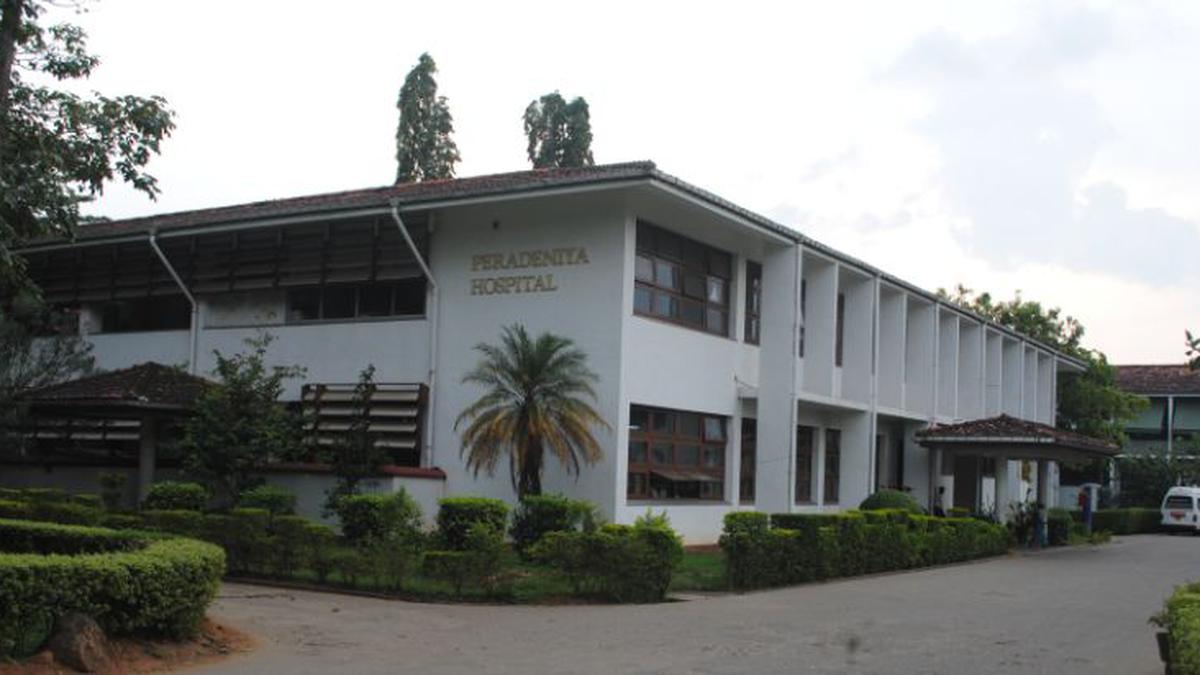
Indian drugs at the centre of a medical storm in Sri Lanka
The Hindu
Two patients die after being given Indian-made anaesthetic drugs; Indian-made eye medication caused visual impairment in 10 patients; Sri Lanka faces two-fold crisis of drug shortage, quality concerns
Imported Indian drugs are at the centre of a medical storm in Sri Lanka, following cases of medical complications and fatalities, reportedly after patients were administered medicines sourced from India.
On June 16, local media reported the death of a patient undergoing treatment at the Peradeniya Teaching Hospital, in Kandy district, after being given the Indian-manufactured anaesthetic Bupivacaine. The news sparked concern among locals, especially since the incident came less than two months after a pregnant woman was reported dead at the hospital, after being given an Indian anaesthetic drug. Following the April incident, the Health Ministry suspended use of that drug.
Even prior to these incidents, Transparency International Sri Lanka had filed a fundamental rights petition in the Sri Lankan Supreme Court, challenging the decision of the Cabinet and health authorities to procure drugs from unregistered suppliers. The petition further questioned the national drug regulator’s role in providing a waiver of registration to allow for the swift import of essential drugs. Gujarat-based Savorite Pharmaceuticals (Pvt) Limited and Chennai-based Kausikh Therapeutics were named as respondents. Early in April, the Supreme Court granted leave to proceed in the case and suspended imports from these companies.
Indian drugs made the news yet again in May 2023, when doctors at the general hospital in Nuwara Eliya, in Sri Lanka’s Central Province, reported complaints of visual impairment among 10 patients who were administered Indian medicines after eye surgery. The doctors cited the “presence of germs” in the eye medication as reason for their patients’ condition. Health authorities initiated an inquiry and withdrew the drug to prevent further use.
The series of incidents have brought Indian drugs under sharp scrutiny within Sri Lanka, including in the local media, which has urged Sri Lankan authorities to “to nip a possible national-level health threat in the bud”. Some highlighted the cases of Gambia and Uzbekistan, where Indian-made cough syrups were recently linked to the deaths of dozens of children.
Also read | CDSCO starts probe into Indian-manufactured eye drops leading to infection
For years, India has been Sri Lanka’s top source of medical supplies, accounting for nearly half of its pharmaceutical imports that in 2022 totalled about $450 million. The trading link became more crucial in the wake of Sri Lanka’s unprecedented economic meltdown last year, that led to critical shortages, including medicines. The crisis-hit country continued procuring essential medical supplies from India, through the credit line offered by the Government of India, as part of its nearly $4 billion assistance to the island nation.

The 29th edition of the Conference of Parties (COP29), held at Baku in Azerbaijan, is arguably the most important of the United Nations’ climate conferences. It was supposed to conclude on November 22, after nearly 11 days of negotiations and the whole purpose was for the world to take a collective step forward in addressing rising carbon emissions.










